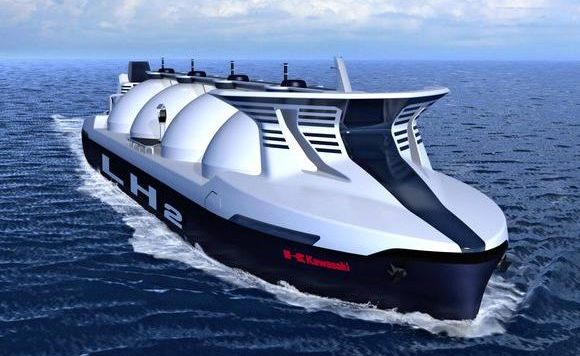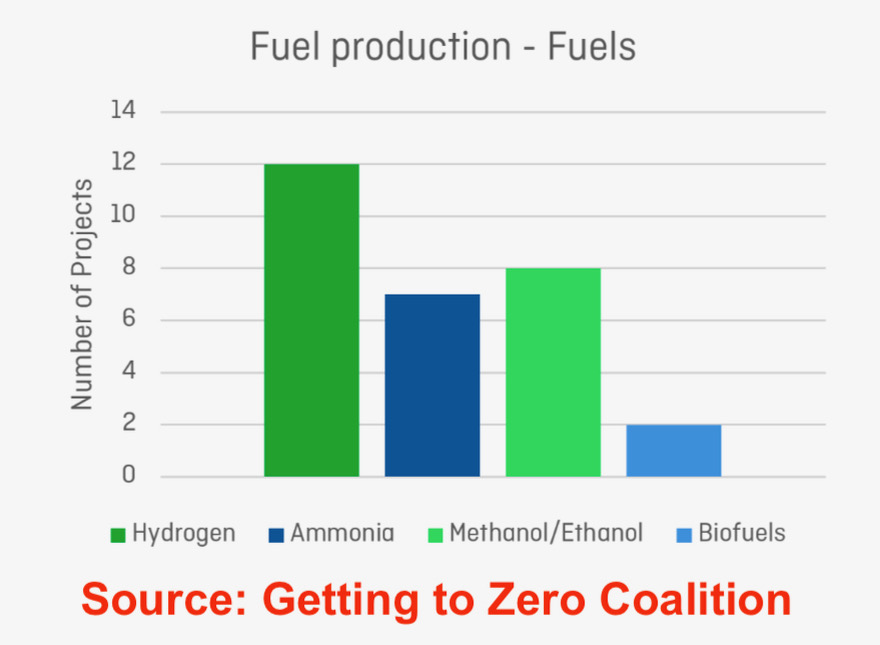Hydrogen leading the way in new global zero emission study

The Getting to Zero Coalition has started mapping some of the many zero emission pilots and demonstration projects going on around the world, with hydrogen research leading the way in one form or another in shipping’s pursuit of a clean fuel.
The research currently includes 66 pilot projects with more to be added soon.
The findings are preliminary as the mapping does not proclaim to include all relevant projects or all details about all of the included projects. As the mapping is further developed and more projects are included the findings will become more robust.
The key is to close the competitiveness gap between traditional fossil fuels and new zero emission fuels
Projects which have a direct link to hydrogen made up the majority of the fuel production projects identified. It is worth noting that some projects involving hydrogen have been counted twice in so far as they combine hydrogen production with the production of other fuels such as ammonia or methanol. What the level of hydrogen projects does show is that those following some type of hydrogen pathway are significantly the most represented.
The study’s authors add the caveat that that the general production of biofuels has moved beyond the demonstration stage, which explains the relatively small number of projects identified, which are all focused on producing biofuels from new types of sustainable feedstocks.
There are also some important fuel production projects in the mapping which are linked with a number of different off-take sectors including for instance shipping, aviation and heavy transport. This indicates that there can be significant synergies having the same energy and fuel production infrastructure supplying different end use sectors in terms of building a better and more resilient business case and scaling the fuel production.
“Having an overview of the scale and variety of projects globally is a vital step in being able to offer deeper insights into how the future of marine fuels is unfolding,” the study states, adding: “By being able to see all of the work that is already underway, it is hoped that the mapping will help to catalyze new ambitious pilots and demonstrations.”
Most of the identified projects came from Europe, with the next highest geographical concentration being in Asia. The report’s authors note that the geographical spread of projects is likely skewed due to the more European makeup of the Getting to Zero Coalition. Factors in terms of project transparency, the availability of public information and language barriers have also contributed to lower representation of, for example, Asian projects.
The Getting to Zero Coalition is a partnership between the Global Maritime Forum, the Friends of Ocean action, and the World Economic Forum.
The coalition will update the mapping on an ongoing basis, with the plan being to release further versions bi-annually. This will make it possible to identify new trends in the projects being launched.
Kasper Søgaard, head of research at the Global Maritime Forum, commented: “The majority of projects covering fuel production focus on green hydrogen which is largely due to hydrogen’s position as a building block for the production of other fuels such as ammonia or methanol.”
Most of the projects identified are planned as demonstration projects which means that they are capable of operation under real-world conditions.
“Much of what needs to be achieved is already technically possible. The key issue here is to close the competitiveness gap between traditional fossil fuels and new zero emission fuels,” Søgaard said.

